When I called up Becky Clough, I told her I was writing a piece about the unexpected and unscheduled things that can happen on expeditions and how students learn from it.
“Yeah, as in everyday,” she replied with a laugh.
Becky has a lot of experience leading others in the field. She first started working at Outward Bound in Colorado in 2007 as an Assistant Instructor. She now serves as a program manager for the Southwest program—overseeing courses, mentoring incoming staff and continuing to work with students on backpacking, canyoneering and rafting courses as a course director.
“One of our primary roles as Instructors is to help students navigate through the physical and emotional struggles that happen on a course, and a lot of times simply being out there is a significant challenge in both arenas for students,” she said. Then she referred to this quote: “Our job is to comfort the afflicted and afflict the comforted.”
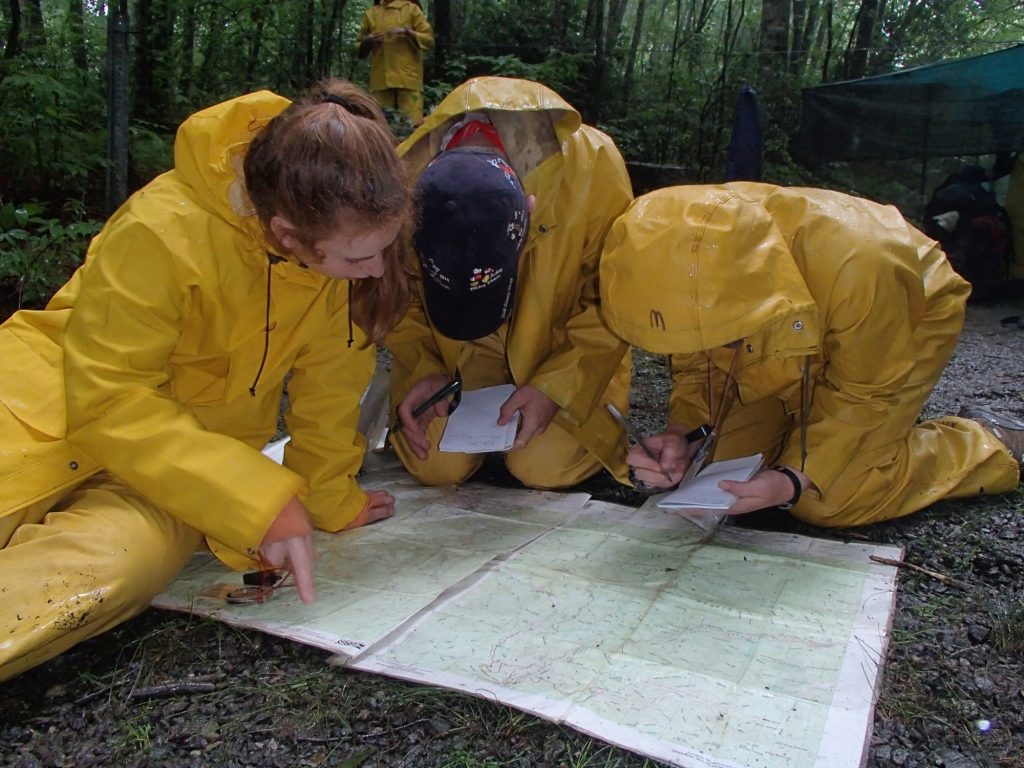
This means finding a good balance: comforting the students being pushed too far or welcoming students who have come in with tough past experiences. It also means identifying students who need higher levels of challenge and providing a situation to make that happen, while also finding a way to move the whole group forward as a cohesive unit.
Sometimes one student or even the whole group is in need of a challenge—a catalyst to help them talk honestly, open up emotionally, or a physical push. Becky said it sometimes happens naturally and in a really beautiful way.
“Often times the course itself provides something that spurs them to move on to that next level of performance,” she said. “And sometimes that’s an unexpected rainstorm. You’ll be at a higher altitude above tree line and all of a sudden this storm rolls in really fast, and you’re sitting down for lunch and you just have to pack up and move together really quickly as a group when you’re really hungry and tired. Nature itself provided this opportunity that says, ‘Nope, what you planned isn’t going to work right now,’ and as a group you have to work through that. Situations that push students to work together like that, often seen as things ‘going wrong,’ are so much more impactful when they happen naturally.”
“The wonderful thing about Outward Bound expeditions,” Becky said, “is that they provide an opportunity for students to develop emotional and physical resilience that they can subsequently use when they need to, and know that they can.”
“It just ends up being this beautiful metaphor for students to take home, because it’s not so much about that they learn how to wake up in the middle of the night and tighten their tarp when it’s sagging. That’s important while they’re on the course, but what, in the larger sense, does that teach them? Well, sometimes there’s a metaphorical rainstorm and your tarp is sagging, and you don’t want deal with it but you have to get up and take responsibility for what’s happening. That can play out in all kinds of ways: at work, in college, or in heartbreak or unexpected loss.”
Becky said she believes the main things we teach are resilience and compassion—resilience in the face of those unexpected challenges and compassion with ourselves and with each other, because it’s so much easier to get through those challenges together.
Here are other examples of how things can go wrong, for the better:
The group missed a turn.
While the Instructors step back to let the students lead the navigation, let’s say they miss a turn and suddenly someone thinks the group isn’t where they want to be. Some members of the group don’t realize they’re off track, some don’t believe it, and others are convinced of it. Next, the Instructors assess the situation. Does the group need a challenge? Should we let conflict play out? Was the group working together while planning the route? Also, it’s getting dark soon and everyone has carried their heavy packs for hours. People are tired and hungry. Perhaps the students need a hint: “Have you looked at the map lately?” or “Remember how you were talking about that turn off—did you see that earlier?” Instructors manage these challenges in the moment so the situation doesn’t turn sour, all in an effort to let the students “mess up safely,” Becky says.
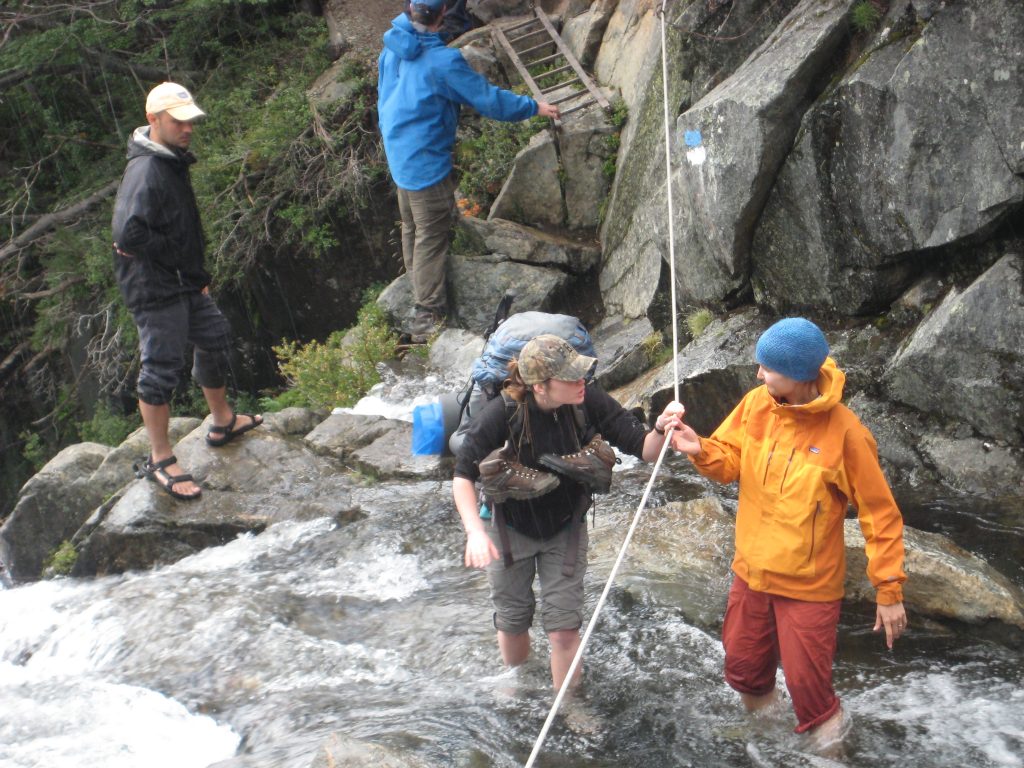
The bread box is missing.
Somewhere between packing the food and unloading it in the wilderness, the bread goes missing. No one realizes it until they start to pull out the ingredients for the first lunch in the field. Now they can get creative. For example, no tortillas? Turn your burritos into burrito bowls. Becky said, “These are the times I try to remind my students of a quote I once heard: ‘If you’re having a bad day, have a good one instead. It comes down to taking responsibility for your perspective and not blaming others, which is a really useful skill.”
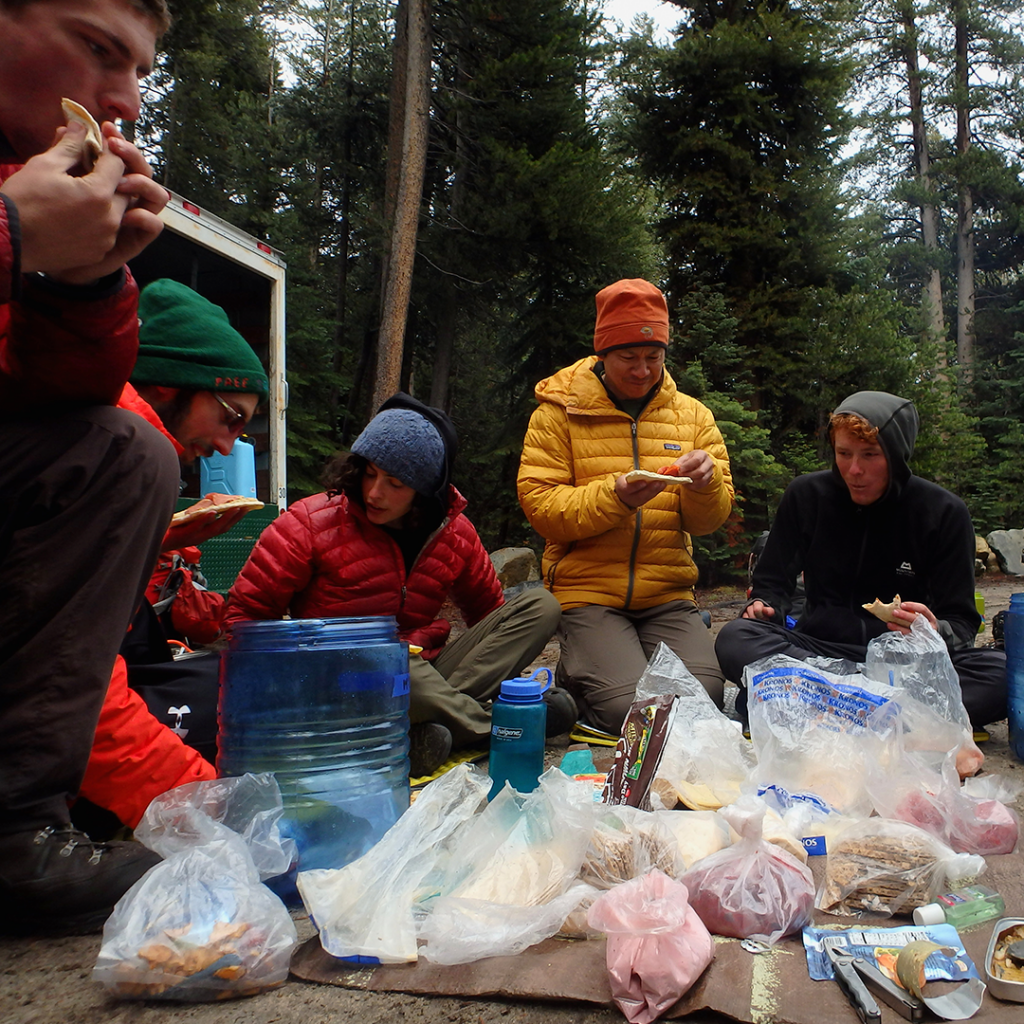
People don’t agree.
Conflict can feel uncomfortable, but working through it can be extremely progressive for the sake of the group and for the individuals at the center of it. “It’s another representation of any challenge in life,” Becky says. “If you’re having a conflict, the best thing to do is create that space where people feel like they’re safe to express how they’re feeling, so folks can actually move through it. That expectation has to start on day one of a course.” Ultimately, if there’s a conflict, it means that two or more people aren’t on the same page. Creating the time and space for voices to be heard is another important skill to learn.
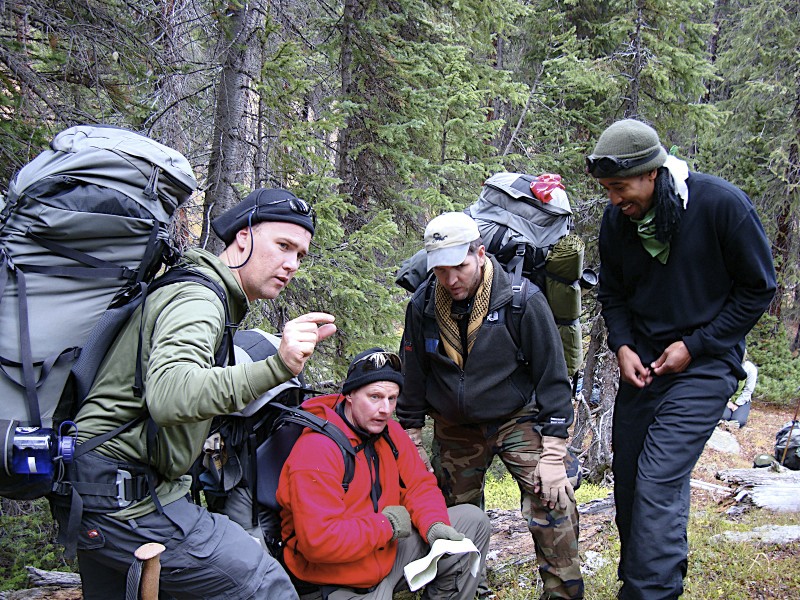
There’s no wind while sailing.
The crew rows. To help balance out the hard work, the captain and crew can create a system where everyone rotates through jobs. Here, everyone works together, taking into account their individual needs and collective goals. They decide how long a rowing shift should be. Other crew members will need to keep watch on the bow and keep navigating toward their destination, steer the tiller—and if needed—take depth checks to make sure the boat doesn’t get stuck in low water. The good thing about rowing is that the boat goes slow. This isn’t always desirable, but it allows more time to spot wildlife and plants, spur discussions and get some exercise.
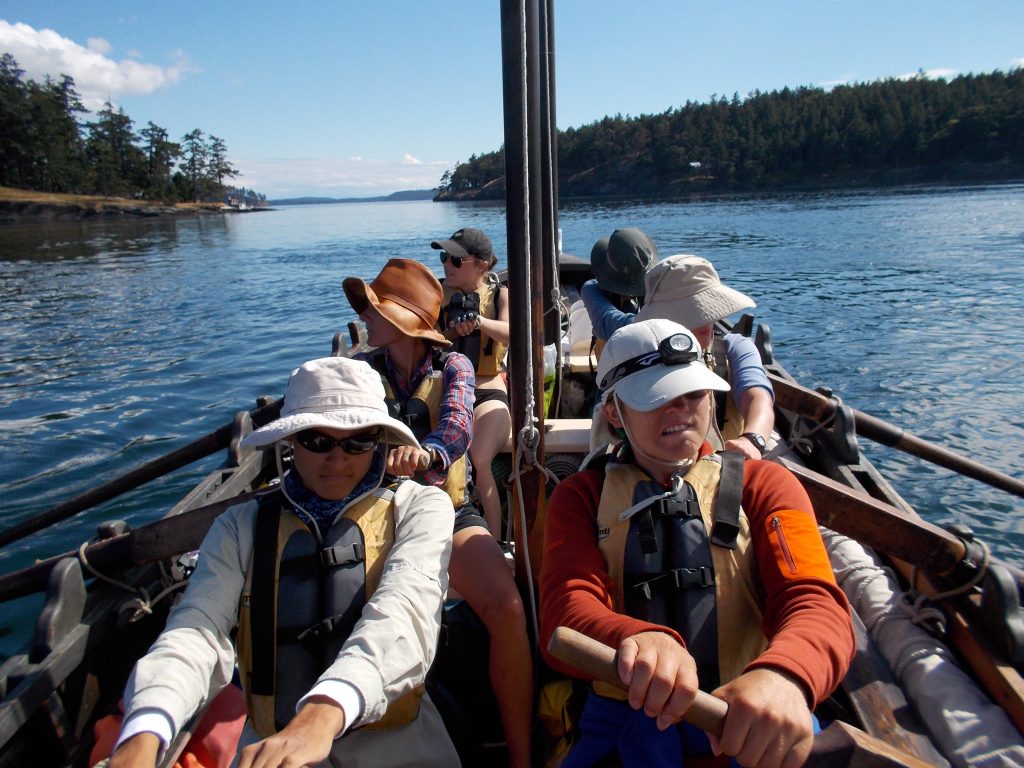
Someone else is sleeping at the group’s intended campsite.
Every expedition has a tentative plan for where the group will sleep each night. But on a rafting course, for example, the crew may round the bend and see that a group is already at their intended campsite. Outward Bound has permits to public lands for our course areas, and even though a group can plan to camp somewhere, anyone is capable of getting there first and using it. Becky says that students often catch a glimpse of someone in “their” camping spot and it can end up being part of a larger conversation about shared use of land. She says that it can even be a good opportunity to talk about when things you expect to go one way, go another.
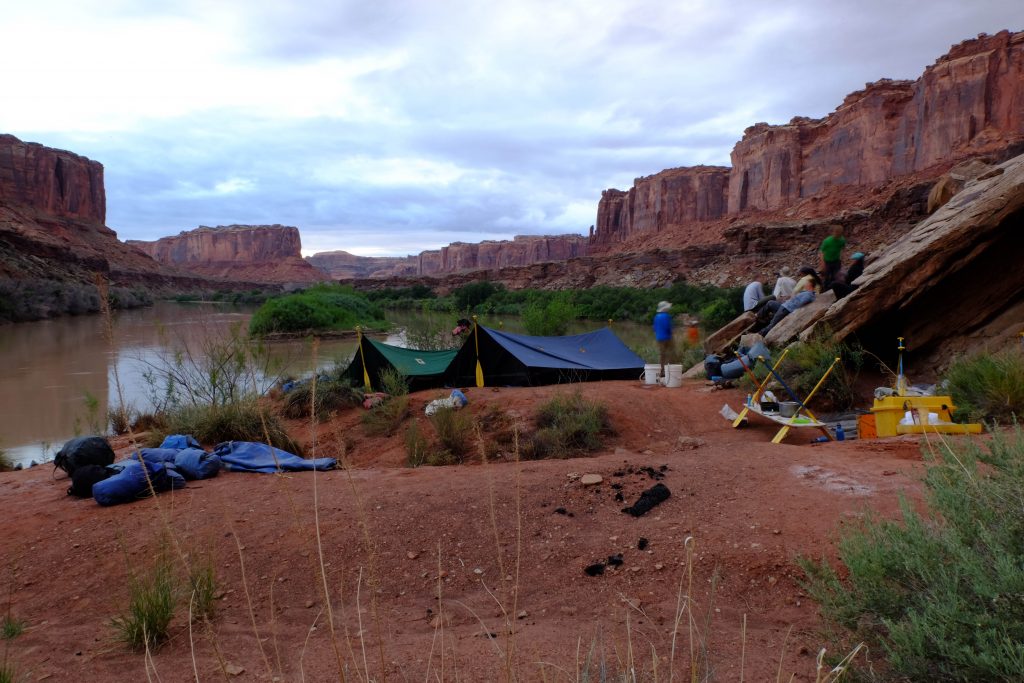
Photo by Leonard McGirr
In the end, Becky maintains that Instructors are always facilitating these unique challenges. Even when they are unable to control something as unpredictable as the weather, they are constantly assessing situations for safety, and the need for positive risks and challenges, along with discussions that help students build resilience and develop compassion.
“As professionals in the outdoor industry, we have to balance letting things ‘go wrong’ that we can help our students learn through, while also keeping them physically and emotionally safe.”
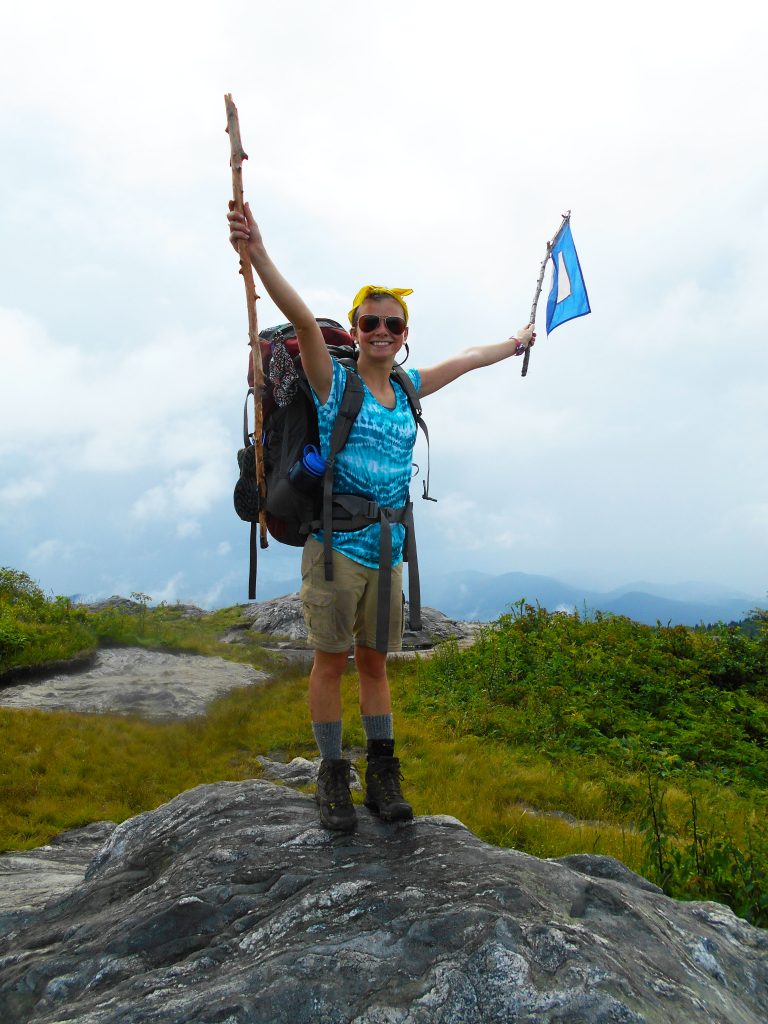
About the Author
Olivia Schneider is a Logistics Coordinator at the Colorado Outward Bound School in Moab, Utah where she was previously the media intern. She is an alumnae of the Voyageur Outward Bound School, Hurricane Island Outward Bound School and has volunteered for the Philadelphia Outward Bound School. She loves dance parties, tennis, unplanned nourishing conversations, and being on a boat.
OTHER POSTS YOU MAY LIKE
Read More
Read More
Read More




